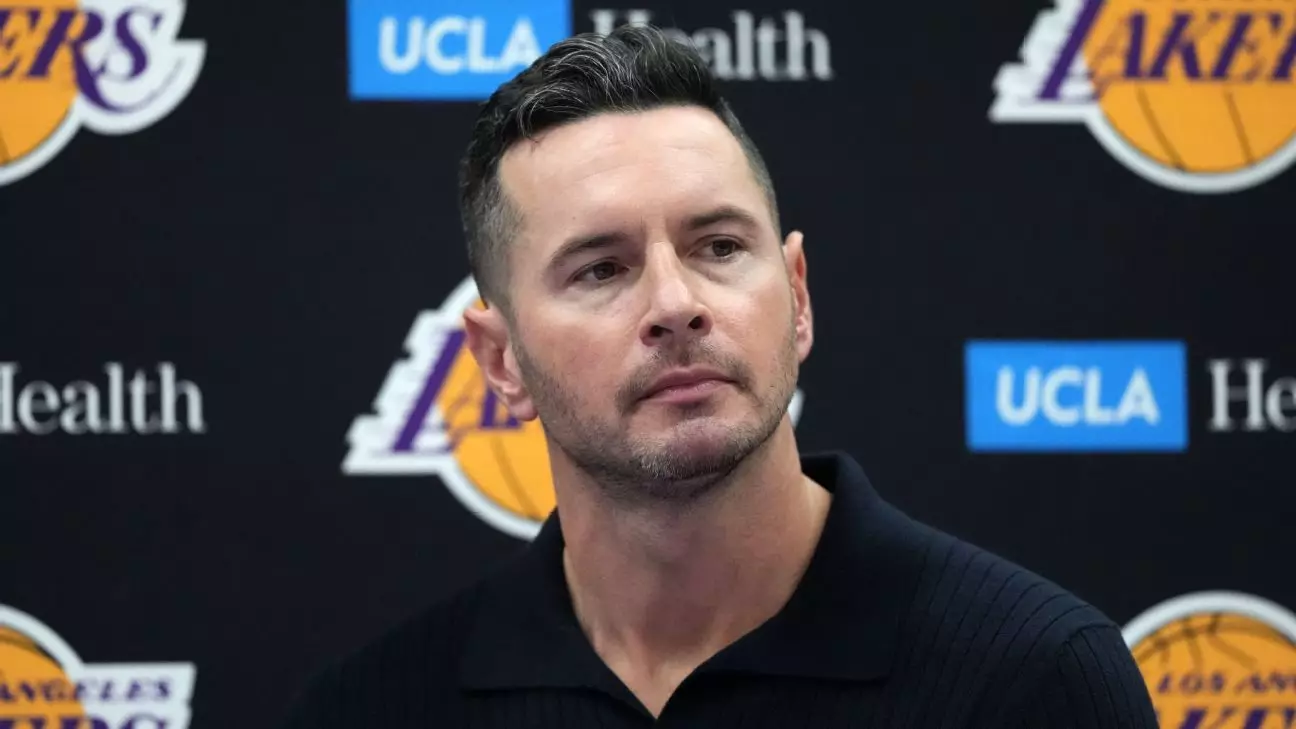The world of professional basketball often finds itself intertwined with personal journeys, particularly when players transition into coaching roles. One such journey is that of JJ Redick, the former NBA player turned coach of the Los Angeles Lakers, who is now experiencing firsthand the complexities of coaching dynamics and the weight of past relationships. As Redick prepares for the upcoming season, the ramifications of his previous role as a media analyst are becoming increasingly evident, especially when discussing one of his former coaches, Doc Rivers, amid the backdrop of the Lakers’ matchup with the Milwaukee Bucks.
Navigating Old Relationships in New Roles
During a recent game against the Bucks, Redick expressed a nuanced perspective regarding his historical relationship with Rivers, who previously coached him during Washington’s stint with the Los Angeles Clippers from 2013 to 2017. The transition from player analysis to coaching is not merely about strategy and tactics but also involves navigating existing relationships and past criticisms. This became particularly salient when Redick was reminded of his animated critiques of Rivers during a segment on ESPN’s *First Take*, where he openly addressed the struggles of the Bucks and Rivers’ transition into the head coaching role after taking over from Adrian Griffin.
Redick characterized Rivers’ inability to accept accountability and described a pattern of making excuses instead of taking responsibility. With the shift in his role from analyst to coach, Redick acknowledged the need for reflection. Although he stood by his critical insights, he recognized that the delivery of his message could have been more measured. “I regret my tone in that case,” he stated, indicating a thoughtful approach towards personal growth as he settles into his coaching position. This acknowledgment reveals an important aspect of leadership: the capacity to reflect, learn, and adapt.
The Coach’s Perspective: A One-Way Relationship?
Rivers, now in his 26th year of coaching and boasting a significant record of wins, responded to Redick’s criticism by framing it as a reflection of an often one-sided relationship between coaches and players. He emphasized that while coaches pour their energy and emotion into developing players, the feelings may not always be reciprocated or acknowledged by those they mentor. His comments shed light on the emotional toll that coaching can take, as well as the inherent complexities of these mentor-mentee relationships.
“Many times,” Rivers remarked, “the love is rejected. You can never take it personal.” These observations encapsulate a fundamental truth in sports: while coaches strive to enhance the capabilities of their players, the outcomes of those relationships can vary, resulting in a spectrum of responses from the athletes. This challenge is compounded by the public nature of the sport, where candid assessments and critiques can resurface at any moment, which is particularly relevant in the context of player-coach dynamics.
The fallout from coaching changes doesn’t end with just one relationship. Redick’s ascendance to the Lakers’ head coach position left a vacancy that Darvin Ham, his predecessor, now occupies in Milwaukee as an assistant coach. The coaching carousel highlights the difficulty of leaving a lasting impression amid the inevitable transitions within NBA teams. Ham himself, reflecting on his time with the Lakers, emphasized a sense of growth and improvement despite facing challenges that included injuries and a mixed record during his tenure.
In his comments, Ham displayed a magnanimous spirit, focusing on the positives he gleaned from his time with the Lakers. He expressed gratitude for the opportunity to contribute to a franchise with rich history and undeniable potential, illustrating how successful leaders pivot their focus towards constructive experiences even when faced with adversity and public scrutiny. Such attitudes signal a commitment to the development of both team and individual players—one that Redick is now adopting as his coaching philosophy.
The transition from player to coach offers lessons in accountability, self-reflection, and resilience—qualities that both Redick and Ham have demonstrated in their respective journeys. Moving beyond previous judgments and personal grievances not only enhances their effectiveness as leaders but also sets an example for players who may struggle to navigate challenges within their careers.
Ultimately, the narrative of JJ Redick serves as a powerful reminder of the cyclical nature of sports relationships and the emotional complexity involved in the coaching realm. As he steps into his new role, the lessons learned from his past experiences may very well shape his approach, allowing him to cultivate an environment of understanding, growth, and responsible leadership within the Lakers organization.

